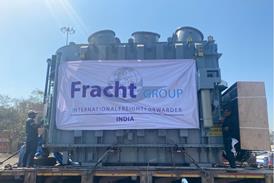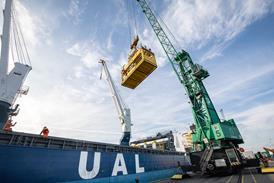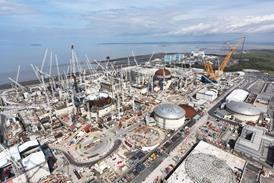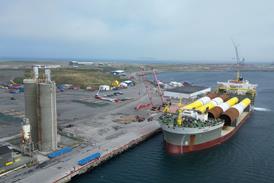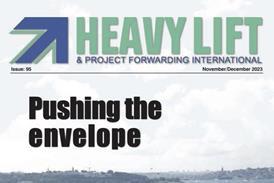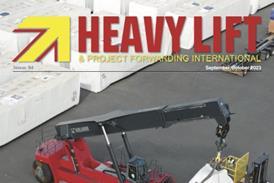Royal Boskalis Westminster reported a drop in revenue and a net loss in 2020. However, the company said that it exceeded expectations during 2020 and it is in a strong position for the year ahead.
Compared to 2019, Boskalis’ revenue decreased last year by 4.5 percent to EUR2.53 billion (USD3 billion). It reported a net operating profit of EUR90 million (USD108.3 million) but, when accounting for exceptional charges, it posted a net loss of EUR97 million (USD115.7 million). In 2019, the company posted a net profit of EUR75 million (USD89.5 million).
Nevertheless, Peter Berdowski, ceo of Boskalis, was bullish on the company’s performance: “Thanks to our tight cash management, we significantly improved our net cash position to EUR439 million [USD528.3 million].” Despite Covid-19 restrictions, the company also increased its orderbook to a record-high EUR5.3 billion (USD6.4 billion).
Boskalis’ dredging division was negatively impacted by delays to some major projects, with revenue down 13 percent. Global travel restrictions and quarantine measures also led to operational inefficiencies, Boskalis said. The largest revenue contribution came from projects in Southeast Asia, the Indian subcontinent, the Middle East, Canada, and the Dutch market, the company added.
In Boskalis’ offshore energy division, its services suffered from the unexpected sharp fall in the oil price, resulting in a drop in demand in parts of the offshore market. Nevertheless, revenue from offshore energy, overall, increased by more than four percent.
Berdowski added: “Exactly twelve months ago, we confidently presented our new three-year business plan. A couple of days later, we sailed into the thick corona fog and many certainties fell away. We immediately drew up a crisis plan in which the safety of our colleagues was paramount.
“Besides the health of our colleagues, business continuity was a key priority. Projects had to continue as much as possible, vessels had to keep running and cash flows had to be maximised. We managed to provide relief to the projects and vessels through various creative solutions. We set up our own test facilities and, where necessary, organised our own chartered flights allowing us to move thousands of colleagues around the world.
“We have provided support to homeworkers and are doing all we can to make mandatory quarantine periods bearable. Looking back on all these challenges, it is all the more impressive what we achieved together in 2020.”
He said that a lot of work was executed in the offshore wind energy arena – ranging from survey work on the East Coast of the USA, transporting and installing cables and foundations in Europe, to rock installation for scour protection in Taiwan.
In the fourth quarter of 2020, Boskalis also won a EUR1.5 billion (USD1.8 billion) contract to redevelop land at a new airport in Manila, the Philippines. According to Boskalis, this is the largest project it has taken on.
During the year, the company’s semi-submersible heavy transport vessel, BOKA Vanguard, transported a 91,000-tonne FPSO, and its largest cargo ever – a 385 m-long fish farm.
Looking forward, the prospects are promising. There are a number of large projects for seabed intervention, as well as the start-up of the Changfang and Xidao offshore wind project in Taiwan. The outlook for marine transport services is also positive, said Boskalis, as a number of delayed cargoes from 2020 will contribute to 2021 utilisation.
The company added that, with a well-filled orderbook and strong financial position, it is in “good shape”. However, the unpredictable course of the Covid-19 pandemic and the start-up of several large projects will be key factors in determining 2021 performance.

